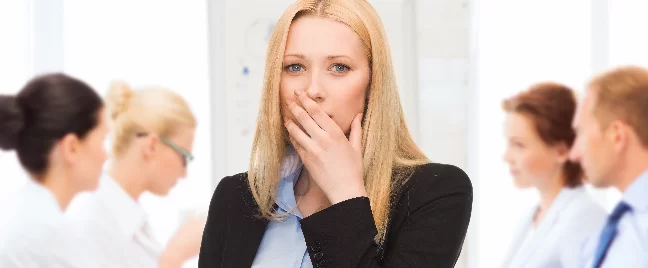Your sales skills will always be put to test when engaging with potential customers using sales pitch or presentation. In business-to-business telemarketing where face-to-face interaction is absent, convincing your prospects to seal the sales deal requires a special kind of expertise, combined with exceptional persuasion and confidence, in order to influence the customers buying decision.
But knowing how to give a sales presentation is never enough. It s more important for salespeople to know what can prevent them from selling. No matter how refined your sales skills are, these five mistakes can still ruin your chances of getting a positive response from the customers listening to your sales talk:
• Focusing on features instead of benefits
Product features describe how customers can use your merchandise, but they don t really help you sell. It s the promised benefits that will convince customers to buy your product. Discussing features may appeal to your prospects logic, but presenting the true value of what you re selling adds emotional factor to the equation. Instead of explaining how your product works, convince your customers how it will change their lives for the better.
• Talking too fast and too much
True, it s called sales talk because it s largely about you talking to your prospects. But, in reality, listening is just as important as talking when giving sales presentations. If you feed your prospects with every single bit of information about your product, you run the risk of boring or frustrating them. Pausing from time to time can help you in two ways: it adds emphasis to your statements, and it also gives your customers time to process what you are saying so that they can think of possible questions to raise.
• Making your purpose of selling too obvious
The purpose behind your sales pitch is to make a sale. But, all your customers care about is to find solutions to their problems. If you make your customers feel that you are there to solve their woes, they will appreciate it and possibly reward you with a successful sales deal. People get tired of listening to canned pitches, sales cliches, and overused phrases and can translate them to insincerity. Save your sales-begging statements for the later part of your talk.
• Failing to engage with customers
If you think your sales presentation is all about your product or service, you re wrong. It s about making customers realize how your proposal can impact them. That s why you should hear from them during your presentation. It s a sign that they are beginning to see, or at least consider, the value of what you re selling. Credibility matters in convincing people to buy. You can manifest this buy confidently answering questions from your prospects and making them feel that you understand their concerns.
• Not supporting claims with real experiences
No matter how eloquent you sound while discussing the benefits and uses of your product, your words will not have much weight if they are not backed up by testimonials from real customers. Reviews from people who have tried your product are like endorsements to your prospects. Use success stories that will create remarkable narratives in the minds of your customers. This vivid and relatable dialogue can provide a significant push to their decision-making process.
By avoiding these sales pitch mistakes, you can become better in convincing people to do business with you. It s fine if you or your sales force is guilty of any of these blunders. What matters is that you make yourselves aware of these mistakes and consciously avoid them the next time you give a captivating and well-prepared sales presentation.






